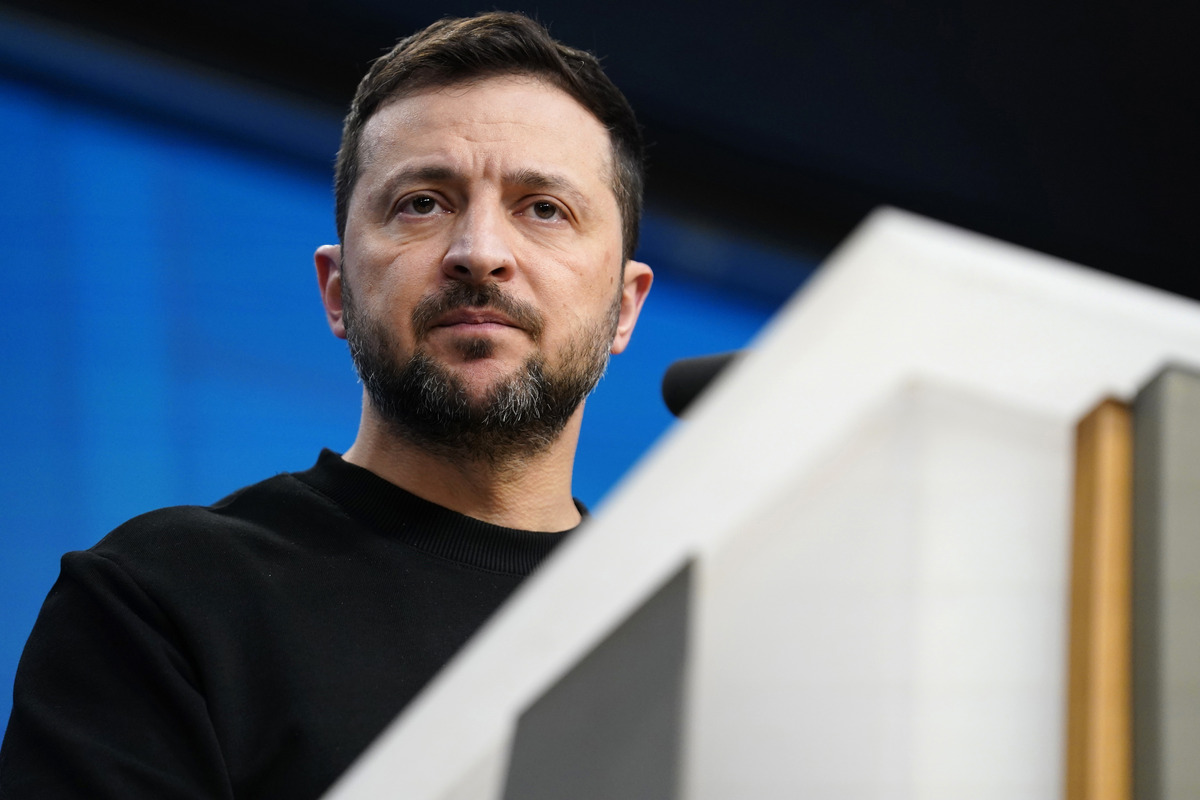Ukraine's allies are prolonging the war with their continued support of the country, according to a NATO member state prime minister, who voiced a sentiments feeding into a possible foreign policy shift under President-elect Trump's administration.
Reducing U.S. aid would "be the way to a solution," Slovak Prime Minister Robert Fico said Saturday, adding that "the war won't end as long as the West massively supports Ukraine."
Since Russia invaded its neighbor in 2022, Ukraine has received more than $200 billion in military, financial and humanitarian support from the U.S. and European powers, according to the Kiel Institute, with a further $90 billion pledged to help the country repel Moscow's forces.
Fico expressed skepticism about the effectiveness of maintaining this high level of assistance, in his interview with Slovak Television and Radio(STVR), a state-funded public broadcaster.
Once part of Czechoslovakia in the former Soviet-controlled Eastern Bloc, Slovakia, officially the Slovak Republic, became an independent state on January 1, 1993, and shares borders with Ukraine, Hungary, Poland, Austria and the Czech Republic.
The U.S. is currently Ukraine's largest single state benefactor, providing the lion's share in terms of direct military assistance to the war-torn country, as well as significant sums of humanitarian support.
But the recent reelection of Donald Trump has led to speculation that the U.S. could soon pull this support, given the doubts he and his surrogates have raised over the use of American funds for a foreign conflict.
White House National Security Adviser Jake Sullivan said in an interview with CBS News on Sunday, that President Biden was determined that the next administration not "walk away from Ukraine," which he said could raise doubts about America's commitment to its other global allies.
However, Fico said that even if the U.S. were to withdraw its assistance to Ukraine, the European Union should not be left to fill this gap, according to a report of his interview on the website Euractiv.

Fico himself is a prominent skeptic of Ukrainian support, as well as a proponent for improving relations with Moscow.
In October 2023, the newly elected Fico announced that his government would "no longer supply weapons to Ukraine," AFP reported, in line with the prime minister's campaign promises, which also included reducing sanctions against Russia and restoring relations with the country after the war.
"I will support zero military aid to Ukraine … An immediate halt to military operations is the best solution we have for Ukraine," Fico said. "The EU should change from an arms supplier to a peacemaker."
In April, however, Euractiv reported that Fico had affirmed his support for Ukraine's territorial integrity, and condemned Russia's actions as "a flagrant violation of international law."
But Fico has become known as one of Europe's more pro-Kremlin leaders, alongside Hungarian Prime Minister Viktor Orban.
During his Saturday interview with STVR, Fico defended his recent appearance on Russian state broadcaster Rossiya 1, saying: "Why shouldn't Russia have its own propaganda? We have it as well—sometimes, even a foolish one."
"If I went on BBC, perhaps some figures would say I'm spreading Western propaganda," he continued.
The October 30 interview was widely decried in Slovakia, with former prime minister Igor Matovič calling Fico a "horrible treacherous ferret" in a Facebook post.
During the interview with Rossiya 1, Fico also told Russian journalist Olga Skabeyeva that the West had been "prolonging the war" by supporting Ukraine.
While Fico's recent comments were criticized by the Ukrainian outlet Euractiv as stemming from his pro-Kremlin biases, other European leaders have warned that the stalemate conflict could lead to fatigue among Kyiv's backers.
In mid-October, Finnish Foreign Minister Elina Valtonen told the Financial Times that Western nations were becoming "increasingly" frustrated with the inability of Ukraine and Russia to reach a ceasefire, though she said that European powers should nevertheless increase their support for Kyiv.
Do you have a story we should be covering? Do you have any questions about this article? Contact LiveNews@newsweek.com.

















:quality(85):upscale()/2024/04/24/878/n/3019466/36c5693c662965c5d1ce91.72473705_.jpg)


 English (US) ·
English (US) ·